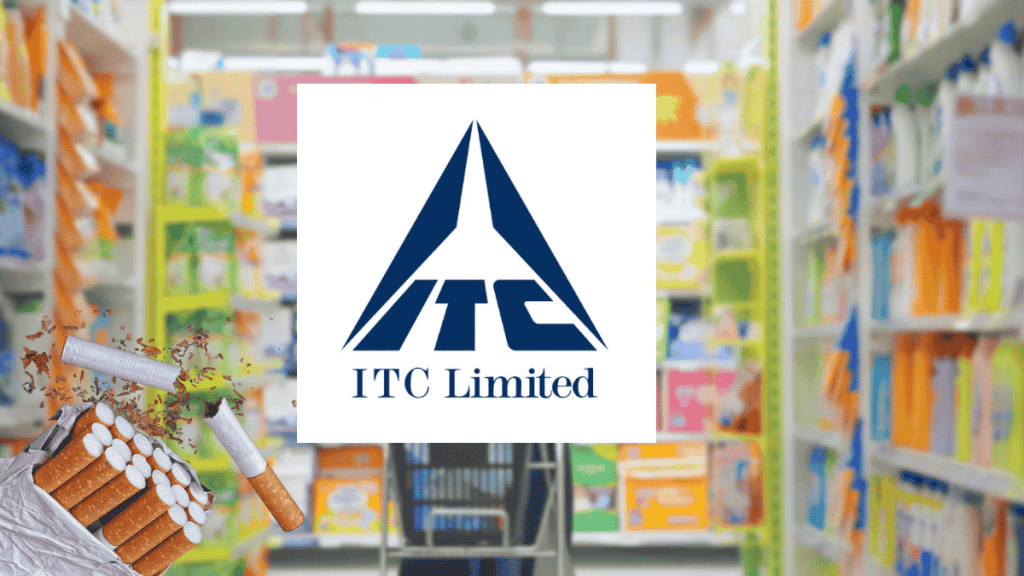Cigarette-to-FMCG major ITC on Thursday reported a nearly 3% year-on-year growth in its consolidated September quarter profit to Rs 5,126 crore, but revenue declined 1.3% y-o-y to Rs 21,256 crore amid GST transition issues. The mixed show notwithstanding, the company beat street estimates on both profit and revenue, which were forecast at Rs 5,080 crore and Rs 19,774 crore, respectively, for Q2.
Consolidated earnings before interest, tax, depreciation and amortisation (Ebitda) for the second quarter grew 2.2% y-o-y to Rs 6,695 crore against Bloomberg consensus estimates of Rs 6,446 crore for the period. Ebitda margins expanded 110 basis points in Q2 to 31.5% versus 30.4% reported in the same period last year. One basis point is one-hundredth of a percentage point.
The ‘FMCG Others’ segment saw an 8% y-o-y growth excluding notebooks. But there were short-term disruptions in FMCG due to excessive rains across several regions and the transition to the new GST regime, the company said. Growth was led by staples, dairy, premium personal wash, and agarbattis, while the premium portfolio and new-age channels continued to perform strongly, it said. ITC derives over 45% and 31% of its total revenue from cigarettes and FMCG segments, respectively.
In the cigarettes segment, net revenue rose 7% y-o-y, driven by strong performance in differentiated and premium offerings. Strategic portfolio initiatives and market interventions, particularly in competitive markets and to counter illicit trade, helped reinforce the company’s leadership position. Leaf tobacco consumption costs remained elevated, although procurement prices moderated in the current crop cycle, it said.
The notebooks business remained under pressure owing to low-priced paper imports and increased competition from local and regional players. Meanwhile, GST rates were reduced in over half of the FMCG portfolio, and the company passed on the benefits to consumers. The segment’s Ebitda margin improved by 50 basis points q-o-q, supported by smart revenue management, price-volume-value rebalancing, and focused cost optimisation amid input cost volatility.
The agri business segment’s quarterly performance was affected by timing differences and a high base effect, though for the first half (H1), the segment’s revenue grew 7% and its results were up 10%. Growth was supported by the company’s crop development expertise, superior product quality, and strong customer relationships in leaf tobacco.
However, value-added agri exports were subdued due to delayed call-offs from customers amid uncertainty around US tariffs. The company continues to focus on market development in new geographies and scaling up its sourcing and processing capabilities, it said.
The paperboards and packaging segment delivered a sequential improvement in performance, with profit up 17% and margins expanding by 90 basis points q-o-q. Segment revenue rose 5% y-o-y, primarily driven by higher volumes. The broader industry, however, continues to be impacted by low-priced imports, high wood prices, and subdued realisations. ITC derives around 12% of its total revenue from paperboards, paper and packaging business. While its agri business gives the company around 21% of its revenue.
ITC said there were initial signs of moderation in wood prices due to improved availability. The government imposed a minimum import price (MIP) on virgin multi-layer paperboard effective August 22, while the directorate general of trade has also recommended anti-dumping duties on imports from China and Chile. Investigations are underway into possible dumping of paperboard from Indonesia.
Ahead of the earnings announcement on Thursday, shares of ITC closed 0.69% lower at Rs 418.70 apiece on the BSE, after touching an intra-day low of Rs 416.15.
